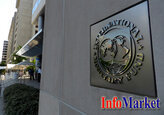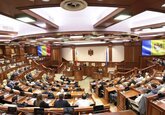
A consortium of national banks from Romania, Holland and Lithuania will help Moldova implement reforms to strengthen supervision, corporate governance and risk management in the financial sector and prepare for the country's accession to the Single Euro Payments Area (SEPA).
This was announced by the National Bank of Romania, noting that on July 22, the EU delegation to Moldova notified the Romanian Ministry of European Investments and Projects (national contact point) about the victory in the selection process for the twinning project "Strengthening supervision, corporate governance and risk management in the financial sector" - the consortium formed by the central banks of Romania, the Netherlands and Lithuania. The project, funded by the European Union within the EU4Moldova program, will run for 24 months and is addressed to the National Bank of Moldova, the Government of Moldova and the National Commission for the Financial Market. The aim of the project is to support Moldova in implementing reforms related to the Moldova-EU Association Agreement / Deep and Comprehensive Free Trade Area (DCFTA) and Association Agenda by strengthening supervision, corporate governance and risk management in the financial sector. Specific assistance activities relate to: strengthening the macroprudential framework to prevent the accumulation of systemic risks, aligning the regulatory framework for the supervision of the insurance sector and third party liability with the requirements of EU legislation, developing a new legal framework to strengthen supervision of non-bank credit institutions, analysis and improvement of internal rules for monitoring the financial market and payment infrastructure, as well as preparation for accession to SEPA (Single Euro Payments Area). SEPA (Single Euro Payments Area) is a single area in which the differences between domestic and international payments in euros are completely eliminated. The first SEPA-related changes came into effect on January 28, 2008. The purpose of the project is to improve the efficiency of cross-border payments and to unite the national markets of different countries into a single home market. A single euro payment area will allow users to make non-currency transactions in euros to any other user located anywhere in the zone using a single bank account and a single set of payment instruments. Additional savings are achieved due to the banks' obligation to credit SEPA payments in full to the beneficiary's account and without any commissions. Payments are made no later than 1 business day after their execution. The project includes the creation of common financial instruments, standards, procedures and infrastructure to support the economy across all participating countries. The result of the introduction of a single euro payment area should be a reduction in the total costs of capital transfers in the European economy (2-3% of the total GDP). // 28.07.2021 — InfoMarket







